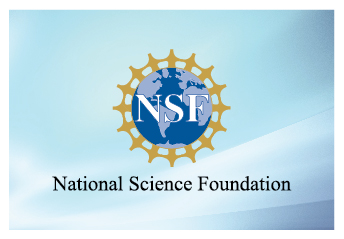
Armed with crucial data on the April 12 tornado collected by the University of Louisiana Monroe Doppler weather radar and other instruments, Todd Murphy, Ph.D., program coordinator in Atmospheric Science, acted quickly to apply for a National Science Foundation Rapid Response Research (RAPID) grant to study the tornado that hit Monroe.

He included the request for funding for the ULM Precision Ag and UAS Research Center to utilize its drone technology for aerial surveys of the damage.
A $51,763 NSF grant was approved in a matter of days, putting ULM drones in the air and boots on the ground to survey the damage and gather information about the EF-3 tornado that ping-ponged through Monroe.
Paul Karlowitz, associate professor and director of the AG and UAS Research Center, and manager Stephanie Robinson both have FAA Small UAS Pilots certificates to operate unmanned aerial systems (aka drones), which is a grant requirement.
“RAPID proposals are used when there is a severe urgency with regard to availability of, or access to data. In our case, we collected a great dataset using our Atmospheric Science instrumentation – radar, Doppler wind lidar, surface measurements, and microwave radiometer – of the storm and tornado that impacted Monroe. Given the close approach of the tornado to our radar, there is an excellent opportunity to relate the tornado damage characteristics to the actual radar data,” Murphy said.
Since the cleanup began almost immediately, it was essential for Karlowitz and Robinson to launch the university’s Yuneec H520 drones with 4K video and 20 megapixel cameras as soon as possible to survey and document the damage from the air. Notified of NSF approval on Monday, April 20, the next day Karlowitz and his team were maneuvering drones over the damaged hangars at Monroe Regional Airport. They will survey several sites where the tornado touched down.
“Stephanie did all the drone flying and filming. I was in charge of safety and the overall mission of data collection and responsible for obtaining the Class ‘D airspace authorization that surrounds the Monroe airport with a 5-mile radius,” Karlowitz said.
The data from Murphy’s weather instruments and the drone documentation, along with the Nation Weather Service’s information, will be analyzed for a comprehensive report on what happened just before, during, and after the tornado.
“This survey data, a combination of aerial and ground survey, will help us better understand the strength of the tornado at various points along its path. We will compare the estimated tornado intensity and size (damage path width) back to our radar data. This comparison could lead to improved real-time radar tornado information, which has the potential to improve future NWS tornado warnings,” Murphy said.
For Robinson, the project provides her with the opportunity to collect valuable information, but seeing the destruction at the airport and other sites hit close to home.
“This was my first time flying right beside the airport, so I took it as an honor and a challenge when Dr. Karlowitz asked me to fly the area. Not everyone gets to fly right beside the airport, Robinson said. “ … it was very emotional to see the homes and businesses that were damaged. It was worse than what I had expected it to be.”
“This research will add to our collective knowledge on processes that we have a lack of data and understanding. It could improve NWS tornado warning leads times and thus reduce tornado fatalities,” Murphy said.
“We also collected other environmental data, which, when paired with the radar and survey information, will lead to an all-encompassing study that might provide clues to the processes specific to squall lines which can induce tornadoes to form,” he said.
More about ULM’s Atmospheric Science program and Precision Ag and UAS Research Center